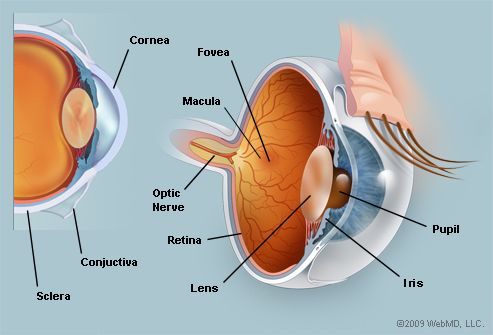 The alarming increase in the number of people suffering from glaucoma disease in Nigeria has become a source of concern for a group of ophthalmologists at the Obafemi Awolowo University Teaching Hospital in Osun State.
The alarming increase in the number of people suffering from glaucoma disease in Nigeria has become a source of concern for a group of ophthalmologists at the Obafemi Awolowo University Teaching Hospital in Osun State.
According to the World Glaucoma Association (WGA), too many persons are unaware that they are living with the disease, therefore, are neither receiving any treatment nor seeing a doctor.
Known as a group of eye disease that causes progressive damage of the optic nerve at the point, where it leaves the eye to carry visual information to the brain, eye experts have concluded that, glaucoma, if left untreated, progresses towards gradually worsening visual damage and possible blindness.
Therefore, ophthalmologists at the Obafemi Awolowo University TeachingHospital (OAUTH) Ile-Ife, Osun State, recently partnered Pfizer to sensitise the public on glaucoma disease and to provide eye care treatment to the affected people in Ile-Ife, Osun State.
According to the medical experts, many who suffer from such bad sight the most are people at the grassroots, because they can neither afford to buy glasses nor see a medical doctor.
A total of 352 patients were screened at OAUTH, where medical experts said about58 persons were suspected to have glaucoma.
The screening, according to the experts, was part of OAUTH programme for this year’s World Glaucoma Week organised by the department of ophthalmology.
Earlier, the department had held a symposium at the conference hall of Virology, OAUTH, with 406 participants drawn from primary and secondary schools in Ile-Ife, including students from school of health and nursing school.
Head, Department of Ophthalmology and Glaucoma Services, Prof Bernice Adegbehingbe, who described glaucoma as ‘silent thief of eyes’, advised that regular eating of balance diet containing fruit and vegetables could prevent people from this incurable disease.
She said: “Glaucoma is the second leading cause of blindness after cataract and also the leading cause of preventable irreversible blindness worldwide, especially in developing countries such as Africa and Asia.
“Globally, there are about 60 million people with various forms of glaucoma and an estimated 8.4 million people are already blind as a result of glaucoma. These numbers are been predicted to increase to 80 million and 11.2 million by 2020.”
Prof Adegbehinde noted that no cure has been discovered for the disease, adding that it has genetic and environmental factors.
“Diabetic patients are prone to the disease, but enough exercise and frequent eye examination are the only means of stopping the progression of the disease.
“The highest prevalence of open-angle glaucoma (OAG) occurs in Africans. OAG is often asymptomatic and affects people of all age groups including children and young adults. A continuous unexplainable rise in the incidence of this ravaging ‘silent sneak thief of sight’ has been documented in recent times,” she said.
She further said that “it is known that Glaucoma can cause irreversible blindness if diagnosed late and left untreated and every living man is prone to it.
“Unfortunately late diagnosis will make approximately 10 per cent to 20 per centof people with glaucoma who receive proper treatment to still experience loss of vision.
“There is no cure yet for glaucoma. It is not curable, and vision loss cannot be regained, though can be prevented with early diagnosis. With medication and/or surgery, it is possible to halt further loss of vision. Since open –angle glaucoma is a chronic condition, it must be monitored for life.”
The Provost of the College of Health Sciences, OAUTH, Professor Adesegun Fatusi, said Nigeria has about 0.7 per cent blindness, out of which 15.7 per cent are due to glaucoma.
He added that about 3.6 per cent of people above age 40 in Nigeria are having blindness.
In a related development, Dr. Oluwaseun Awe of the Ophthalmology Department said glaucoma doesn’t give sign or symptoms like redness of eye or pain, noting that the progression of the disease can only be stopped, but cannot be prevented from starting.”
………
By Rebecca Ejifoma,THIS DAY


Be the first to comment